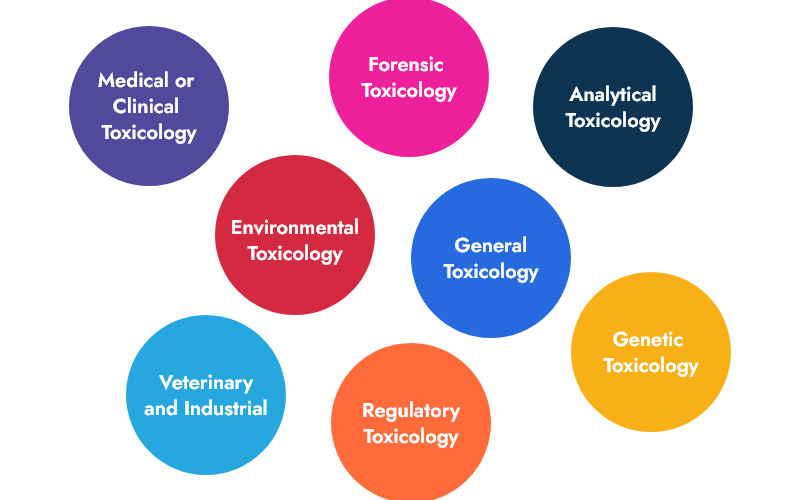LTG Analytical toxicology London represents a pivotal intersection between science, safety, and society. In an era where chemical exposures are prevalent in our daily lives, understanding and analyzing the toxic effects of substances is essential. The field has evolved into a sophisticated discipline that provides critical insights used to protect public health, enforce regulations, and advance forensic investigations.
The Importance of Analytical Toxicology

Understanding why analytical toxicology London plays such a crucial role in contemporary society requires an exploration of its foundational principles and applications. This section aims to delve deeper into its significance, highlighting the necessity for robust methodologies and their implications on various sectors.
Defining Analytical Toxicology
Analyzing what analytical toxicology encompasses can help demystify its importance. At its core, analytical toxicology refers to the study of how chemicals—be they drugs, poisons, or other harmful agents—affect biological systems.
In London, as well as globally, this field is tasked with quantifying the presence of these substances in biological samples. It combines elements from chemistry, biology, and medicine to ascertain the nature of toxins and assess their impacts on human health. As novel substances enter markets at an unprecedented rate, having a firm grasp of their potential effects becomes increasingly vital.
Applications in Public Health
The implications of analytical toxicology extend deeply into public health. Professionals working within this domain contribute significantly towards safeguarding community health through several avenues:
- Detection of Substances: Medical professionals can identify toxic agents in patients who present with mysterious symptoms.
- Regulatory Compliance: Regulatory agencies rely on findings from analytical toxicology to enforce safety standards concerning environmental pollutants and pharmaceuticals.
Through rigorous research and analysis, experts can provide invaluable insights that guide policy decisions and health recommendations. For example, during public health crises, swift identification and assessment of toxins can lead to rapid responses aimed at mitigating harm.
Role in Forensic Science
Forensic science is another major area where analytical toxicology demonstrates its value. The ability to analyze toxic substances in crime scene investigations is essential for legal proceedings.
When investigating drug overdoses, homicides, or even environmental crimes, toxicologists utilize analytical techniques to uncover the presence of illicit substances. For instance:
- Toxicological Reports: These reports serve as vital evidence in court, helping to clarify the circumstances surrounding a case.
- Expert Testimony: Toxicologists may be called upon to explain complex findings to judges and juries, bridging the gap between scientific knowledge and lay understanding.
The integration of analytical toxicology into forensic science showcases its multifaceted applications, providing clarity for law enforcement and justice systems while ensuring accountability.
Methodologies and Techniques in Analytical Toxicology
As one delves deeper into analytical toxicology London, it becomes evident that a variety of methodologies and techniques underpin this discipline. Each approach serves distinct purposes, contributing to a comprehensive understanding of toxic agents.
Chromatography Techniques
Chromatography remains one of the cornerstones of analytical toxicology, utilized widely for separating components of mixtures based on their interactions with stationary and mobile phases.
- Gas Chromatography (GC): GC is particularly effective for volatile compounds. Its high sensitivity makes it ideal for detecting low concentrations of substances, which is often needed in toxicological analyses.
- Liquid Chromatography (LC): LC is employed for larger molecules that do not vaporize easily. It allows for the analysis of a broader range of compounds and extends its utility in examining complex biological matrices.
The application of chromatography is paramount in assessing drug levels in blood, urine, and tissues, offering profound insights into exposure levels and their potential health effects.
Mass Spectrometry
Mass spectrometry (MS) complements chromatographic techniques by providing specific information regarding molecular weights and structures. When combined with chromatography, known as GC-MS or LC-MS, it enhances the effectiveness of identifying and quantifying drugs and toxins.
- Sensitivity and Specificity: MS is renowned for its sensitivity, allowing for the detection of substances at minute levels. This capacity is especially crucial in cases involving accidental poisonings or drug overdoses.
- Tandem Mass Spectrometry: Tandem MS offers additional layers of specificity by conducting multiple rounds of mass filtering. This technique significantly reduces potential interference from other substances, increasing accuracy in results.
Advanced mass spectrometry applications have revolutionized the way toxicologists operate, facilitating the detection of emerging synthetic drugs and enhancing forensic investigations.
Immunoassays
Immunoassays are another vital tool employed in analytical toxicology, leveraging the specificity of antibody-antigen interactions.
- Enzyme-Linked Immunosorbent Assay (ELISA): This commonly used immunoassay effectively detects specific substances, often employed in clinical testing for drug screenings.
- Rapid Testing Kits: With the rise of point-of-care testing, rapid immunoassay kits offer immediate results, making them valuable in emergency settings.
These methods afford toxicologists rapid preliminary results, guiding further confirmatory testing while allowing for timely interventions when necessary.
Challenges and Future Directions in Analytical Toxicology
As analytical toxicology continues to evolve, it faces numerous challenges while simultaneously opening opportunities for innovation. Recognizing these challenges is crucial for understanding the future landscape of this field.
Emerging Substances and Trends
With the continuous emergence of new psychoactive substances, analytical toxicology must adapt quickly to keep pace.
- Novel Psychoactive Substances (NPS): These substances often elude traditional detection methods, necessitating the development of new analytical protocols tailored for their unique chemical properties.
- Synthetic Drugs: The proliferation of synthetic drugs introduces complexities due to variations in formulations, which complicate standard testing procedures.
The dynamic nature of substance creation poses significant challenges for regulatory bodies and healthcare providers, requiring ongoing research and adaptation in methodologies.
Technological Advancements
Despite the challenges, technological advancements promise to enhance the capabilities of analytical toxicology further.
- Artificial Intelligence (AI) and Machine Learning: By integrating AI, toxicologists can analyze vast datasets more efficiently, recognizing patterns and predicting toxicity profiles with greater accuracy.
- High-Throughput Screening Techniques: Innovations in automated screening processes allow for the rapid evaluation of numerous samples, streamlining workflows in laboratories.
These advancements hold the potential to transform the field, improving the speed and accuracy of toxicological assessments and fostering proactive measures against potential threats.
Ethical Considerations
As analytical toxicology grows in complexity, ethical considerations also demand attention.
- Data Privacy: Safeguarding the privacy of individuals whose samples are analyzed is paramount. Balancing the need for thorough investigation with individual rights presents ongoing dilemmas.
- Responsible Use of Technology: With advancements comes the responsibility to use new technologies ethically, particularly regarding consent and potential discrimination in data interpretation.
Addressing these ethical concerns will shape the framework of analytical toxicology practices, influencing public trust and collaboration moving forward.
FAQs
What is analytical toxicology?
Analytical toxicology is the branch of science that involves the qualitative and quantitative analysis of toxic substances in biological samples. It helps determine the presence of drugs, poisons, and other harmful agents and assesses their effects on health and safety.
How is analytical toxicology applied in public health?
Analytical toxicology plays a vital role in public health by detecting harmful substances that may affect population health, enforcing regulations to limit exposure to toxins, and guiding medical treatments in cases of suspected poisoning or overdose.
What techniques are commonly used in analytical toxicology?
Common techniques include chromatography (both gas and liquid), mass spectrometry, and immunoassays. These methods enable the separation, identification, and quantification of toxic substances in various biological matrices.
How does analytical toxicology influence forensic science?
In forensic science, analytical toxicology provides critical evidence by identifying substances involved in crimes, such as overdoses or poisoning. Toxicologists may analyze samples from victims or crime scenes to support investigations and legal proceedings.
What future challenges might analytical toxicology face?
Challenges include the emergence of novel psychoactive substances, the need for technological adaptation, and ethical considerations related to data privacy and responsible technology use. Addressing these challenges will be essential for the advancement of the field.
Conclusion
The realm of analytical toxicology London is rich with complexity, drawing from a multitude of disciplines to address pressing issues surrounding public health and safety. As technology advances and new substances emerge, the responsibilities of toxicologists grow, compelling them to remain vigilant and innovative in their approaches. Through meticulous analytical methods, this field not only protects communities but also unravels the mysteries of toxic agents, shaping policies and practices that safeguard human life. Ultimately, the pursuit of knowledge within analytical toxicology is not just a scientific endeavor; it is a commitment to ensuring a safer and healthier society for all.
